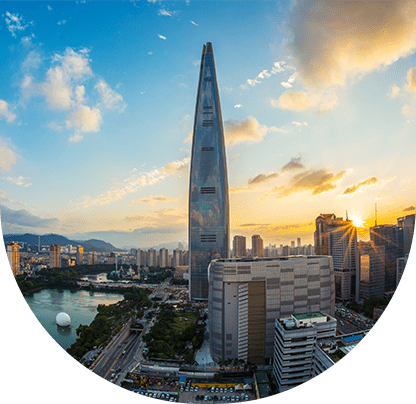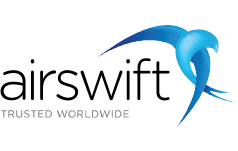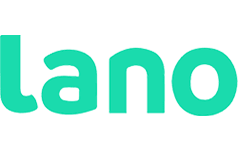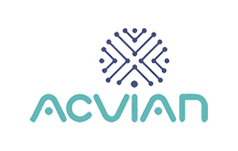Local Providers
We can Determine the top Payroll solutions in Korea locally for you
Global Providers
Expand your business & relocate employees to Korea using top global
PEO / EOR providers
Overview
South Korean Won (KRW)
CURRENCY
Seoul
CAPITAL
monthly
PAYROLL FRECUENCY
PUBLIC HOLIDAYS
16.53 to 35.03
EMPLOYER TAXES
13TH / 14TH SALARY
The 13th Salary in this region is usual and typically given at the end of the year.
Employee and employeer taxation in Korea
Employer
Company Payroll Contributions
4.50% - 4.5%
National Pension (max. monthly taxable income of 5,240,000 KRW)
3.92% - 3.92%
National Health Insurance (max. monthly payment of 8,203,680.00 KRW)
1.15% - 1.75%
Employment Insurance (changes according to the industry)
5.76% - 5.76%
Long Term Care Insurance (maximum monthly payment of 345,600 KRW)
0.70% - 18.60%
Worker Accident Compensation Insurance (rates goes according to the business type)
0.50% - 0.50%
Resident Tax
16.53% - 35.03%
Total Employment Cost
Employee
Worker Payroll Contributions
0%- 4.5%
National Pension (max. monthly taxable income of 5,240,000 KRW)
0%- 3.92%
National Health Insurance (max. monthly payment of 7,047,900.00 KRW)
0%- 6.86%
Long Term Care Insurance (maximum monthly payment of 345,600 KRW)
0%- 0.90%
Employment Insurance (changes by industry)
0% - 16.18%
Total Employee Cost
Employee Income Tax in Korea
Worker Income Tax
6%
Up to 12 million KRW
15%
12 million – 46 million KRW
24%
46 million – 88 million KRW
35%
88 million – 150 million KRW
38%
150 million – 300 million KRW
40%
300 million – 500 million KRW
42%
500 million – 1 billion KRW
45%
More than 1 billion KRW
Minimum Wage in Korea
General
In South Korea, the hourly National Minimum Wage is 9,160 KRW. No matter where an employee lives, the minimum wage applies to all businesses and workers. A global payroll outsourcing company can provide the right salary to every employee. Hiring payroll outsourcing for South Korean companies is a very smart choice.
$1,125.75 Minimum Wage per month
Payroll Contributions in Korea
Payroll Cycle
Payments are typically in place on the final working day of the month according to the payroll cycle in South Korea. An employer of record in South Korea can also provide payroll outsourcing for companies that need it.
13th Salary
In South Korea, according to the Labour Law there are no 13th-month payments.
Employee Benefit in Korea
Visa and work permit in Korea
During the first 3 months of their stay, any foreigners traveling to South Korea to work must register with the regional immigration authorities. Depending on the position the person will have, there are different work permits and employment visas available. The necessary visa must be in place for in order to let a worker to remain in South Korea for longer than 90 days.
Types Of Visas
With an employer of record in South Korea, companies can provide these visas:
- The E-1 Professor Visa is intended for foreigners who wish to conduct research or give lectures in their field; it is available for a year and users can renew it once a year.
- The E-2 Foreign Language Instructor visa is intended for foreign nationals who want to work in the business, educational, or government sectors as language teachers. Every two years, it can be renewed for another two years.
- The E-3 Research visa, which has a one-year validity period and is renewable yearly, is for foreigners who have an invitation from the governmental or private institution to do technological or natural science research.
- E-4 Technological Guidance is intended for foreigners who are invited by a governmental or private institution to provide knowledge in high technology or the natural sciences; it is good for one year and users can renew it annually.
- E-5 Special Profession is for foreigners who hold Korean government authorization to practice their area of competence and are architects, lawyers, doctors, accountants, and other professions. It is valid for a year and users can renew it yearly.
- E-6 Culture and Art is a one-year visa that people can renew annually and is for foreigners who participate in music, artistic, and intellectual activities.
- Foreigners that take part in activities by the Korean Ministry of Justice through a private or public organization are the target audience for E-7 Specially Designed Activities. Users can renew it and has one-year validity.
- D-5 Permanent Reporters for international media are the target audience for the news coverage. Users can extend the three-month single-entry visa once per year for another year.
VAT in Korea
In South Korea, the typical VAT rate is 10.00%. With an employer of record in South Korea, companies can comply with this rule.
Working Hours in Korea
General
8 hours a day, 40 hours a week, up to a maximum of 52 hours per week, are the standard working hours in South Korea. With PEO services in South Korea, companies can abide by this law.
Overtime
Every hour worked in excess of the typical 40 hours is compensated as overtime, which is governed by the employment contract and collective agreements. In general, overtime pay is 150.00% of the ordinary wage rate, with night shifts receiving 200.00% of the usual salary rate (after 10 pm). A maximum of 12 hours may be worked in overtime per week. Abiding by the Korean Labour Standards Act is essential, therefore, hiring an EOR in South Korea is important.
Working Week
From Monday to Friday.
Employee Termination in Korea
Termination Process
In South Korea, the procedure for terminating an employee is standardized and typically based on two primary causes. According to the Korean Labour Standards Act, the employer must demonstrate a "justifiable reason to terminate" and that this reason is admissible under the law. Additionally, before an employee is let go in Korea, the employer must demonstrate that a "urgent managerial necessity exists."
Notice Period
There is no required notice time under South Korean standard labor law unless it is specified in your employment contract or company manual. Nevertheless, giving a month's notice is customary.
Severance Pay
Severance pay is required in South Korea if appropriate, but the amount varies according on the number of years of service, with one month's regular wage compensation for each year of service.
This last payment must be made by the employer within 14 days after the termination.
Probation Period
For permanent employees, probationary periods in South Korea typically last between one and three months. Since the business must cover unemployment benefits, it is uncommon for companies to end a contract after the probationary period or training is over.
Employee Leaves in Korea
Paid Time Offs
In South Korea, paid leave is defined in the contract of employment as a minimum of eleven days of paid leave per year, plus public holidays, beginning after one year of service. When the worker is in their 2nd and 3rd year of employment, this leave is increased to 15 days of paid leave. Once every third year of service is completed, up to a total of 25 days of paid leave, one extra day of leave is contributed to the entitlement. A Professional Employer Organization can make sure that companies provide this and other employees benefits.
Public Holidays
There are national holidays throughout the year.
Vacation Holidays
There are 15 vacation holidays throughout the year.
Sick Days
In South Korea, there is no requirement for paid sick time.
Paternity Leave
From the day the baby is born up to 90 days later, the father is eligible for a minimum of 10 days of required paid paternity leave, of which five are provided by the company and five by social security or the government.
Paternal Leave
A part-time or full-time parental leave of up to a year may be requested by parents of kids under the age of eight. A request for leave with an allowance provided by social security/government must be submitted to the company at least 30 days prior to the commencement of the leave term.
Both parents will earn 100% of their monthly salary if one or both of them take parental leave for the first year after the birth of their child, as opposed to the former arrangement when only one parent obtains 100% and the other got a lower payment of 80%.
Other Leave
Employees have the right to three months of paid absence with 70.00% of their usual pay for any work-related injuries.
Maternity Leave in Korea
All female employees have access to maternity benefits. They include a 90-day paid leave that can be extended to 120 days in cases of numerous or problematic births. Typically, the maternal leave is in place 45 days before and 45 days after the due date.
Employer payments, government and social security payments, and payments are used to cover the cost of maternity leave. The maternity pay shall be paid at 100.00% of the usual rate of pay for the initial 60 days for larger enterprises in South Korea. After then, the government or social security will pay a support stipend for the next 30 days (up to a maximum of 2 million KRW for 30 days), and the employer will have the option of paying the difference between that amount and the employee's regular salary rate. For small businesses, social security and the government assist the employer for the whole 90 days.
There are 90 leave throughout the year.
Take your company to the next level with our support













































